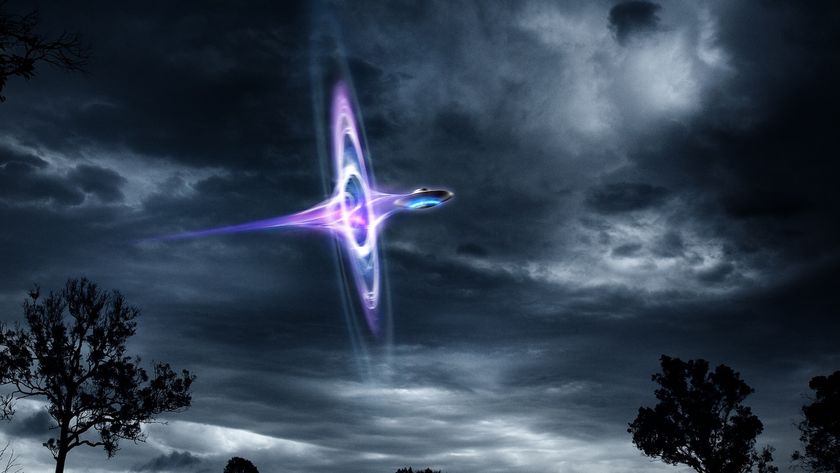'Leaking' cell phone towers could lead aliens straight to Earth, new study suggests
Advanced alien civilizations could probably already tell that there's intelligent life on Earth, thanks to our cell phone towers.

If intelligent aliens are searching for other advanced lifeforms in the galaxy, our cell phone towers could be the beacons that give Earthlings away.
New research suggests that advanced aliens in nearby star systems could probably already detect radio signals from cell phone towers. And as these signals become more powerful, humanity's calling card will become increasingly detectable across the galaxy.
"The Earth is already anomalously bright in the radio part of the spectrum; if the trend continues, we could become readily detectable by any advanced civilization with the right technology," Mike Garrett, the director of Jodrell Bank Centre for Astrophysics at The University of Manchester, said in a statement.
Garrett led the new study, published February in the Monthly Notices of the Royal Astronomical Society. The researchers used crowd-sourced data to simulate the leakage of radio signals from cell phone towers and to determine how difficult these signals would be to detect from other planets. Ramiro Saide, an intern at the Search for Extra-terrestrial Intelligence (SETI) Instution's Hat Creek Radio Observatory and a master's student at The University of Mauritius, led the modeling to determine which signals might be detectable and how far from Earth they could likely be picked up.
The researchers found that Earth gives off plenty of signs of technologically advanced life, with radio leakage coming from cell phone towers, satellite communications and internet signals. These signals could reach hypothetical civilizations living around nearby stars, the researchers said, including Barnard’s star — a red dwarf star located 6 light-years away that may have a huge, Earth-like planet orbiting it.

The signals would so far only be detectable to aliens with more sensitive instruments than those that exist on Earth, the team added. But as the signals get louder, farther-flung or less technologically savvy aliens will be more likely to detect them.
Sign up for the Live Science daily newsletter now
Get the world’s most fascinating discoveries delivered straight to your inbox.
"I've heard many colleagues suggest that the Earth has become increasingly radio quiet in recent years — a claim that I always contested," Garrett said. "Although it's true we have fewer powerful TV and radio transmitters today, the proliferation of mobile communication systems around the world is profound. While each system represents relatively low radio powers individually, the integrated spectrum of billions of these devices is substantial."
Future research should include other sources of radio leakage, such as individual mobile handsets, military radar, digital broadcasting and Wi-Fi networks, the researchers said.
"Every day we learn more about the characteristics of exoplanets via space missions like Kepler and the Transiting Exoplanet Survey Satellite, with further insights from the James Webb Space Telescope," study co-author Nalini Heeralall-Issur, an astrophysicist at the University of Mauritius, said in the statement. "I believe that there's every chance advanced civilizations are out there, and some may be capable of observing the human-made radio leakage coming from planet Earth."

Stephanie Pappas is a contributing writer for Live Science, covering topics ranging from geoscience to archaeology to the human brain and behavior. She was previously a senior writer for Live Science but is now a freelancer based in Denver, Colorado, and regularly contributes to Scientific American and The Monitor, the monthly magazine of the American Psychological Association. Stephanie received a bachelor's degree in psychology from the University of South Carolina and a graduate certificate in science communication from the University of California, Santa Cruz.


